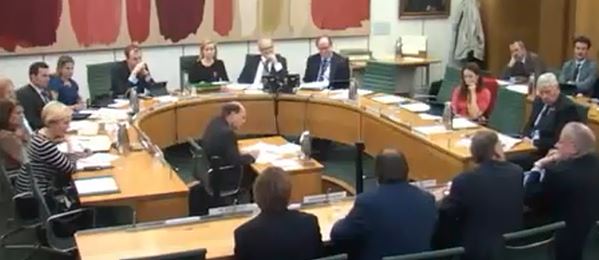- 10/11/2015
- Posted by: Valerie Vaz MP
- Category: News

Panel Two
Q76 Valerie Vaz: I want to pick up the point I made earlier about handling arrangements for bulk personal datasets. Obviously, I could ask you all why, and you could give me a reason. Why do you think that it was passed outside the Bill? Why is it not part of the Bill, and why has it not been defined in the Bill, because it can extend to our medical records, can’t it?
Professor Anderson: There are significant public sensitivities about medical records, which are purely of interest to some agencies, if they are permitted to get their hands on them, and normally would fall under other regulations and other departments. Let me give you another example—your bank statements. How many Government Departments do you want to have access to your bank statements? Do you want a policeman to be able to access them as being, in some sense, less sensitive data? For what purposes would you want, for example, credit reference agency files to be useable? To what extent would you want an investigation to take place by running automated programs over all the bank accounts of everybody in the UK? For example, looking at missing VAT might be the sort of thing that people would start off with, and then—who knows—within five years it would be missing expense claims or duplicated expense claims. Once you start giving automated access to vast amounts of data like that, where are the checks and balances? How do you stop it going from something that most people would agree with, such as looking through foreign bank transfers to look for criminal and terrorist funding support, to something that voters would find personal and oppressive?
Q77 Valerie Vaz: But personal data is not part of the Bill, though, is it?
Professor Anderson: Yes.
Valerie Vaz: It’s already come into force, and it’s not even defined.
Professor Omand: Clauses 151, 152, 153 and 154 in the Bill all set out processes.
Q78 Valerie Vaz: Why was it brought into effect before the Bill comes into effect?
Professor Omand: Because the Intelligence and Security Committee, no doubt rightly, talked about this, and therefore the Government—
Q79 Valerie Vaz: But it is not going to be scrutinised, is it? The whole point of having a Joint Committee is to scrutinise those elements, and it is not going to be scrutinised. It has already come into force.
Professor Omand: It is going to be scrutinised. It is in the Bill.
Q80 Valerie Vaz: But it has come into force already, so it is happening now, isn’t it?
Professor Omand: The existence of bulk access for the security service, say, to the vehicle driving licence database, which seems to me a perfectly reasonable thing for them to want to have pretty quick access to for all sorts of reasons—
Valerie Vaz: Professor Jackson?
Professor Omand: May I finish? The Bill has a whole section on bulk personal datasets. A warrant is going to be required from the Secretary of State, scrutinised by the judge, on the purposes for the dataset is needed, and there are time-expiry rules. You can go through each of those, and I hope the Committee and the Joint Committee will look at that, but we can scare ourselves witless about possible abuses. That is why it is so important that this Bill has tightened up oversight and judicial.
Q81 Valerie Vaz: Professor Omand, I am sure you have read, as I did when I was in the civil service, “The Judge Over Your Shoulder,” written by Roland Phillips. I am sure you know it. You will know that this is not a judge looking behind what the Home Secretary is doing. The judge is just looking at process. That is what judicial review is. They are not looking at reasons.
Valerie Vaz: But it is about access to data, isn’t it?
Professor Jackson: I think you were asking a question about bulk data collection.
Q84 Valerie Vaz: I am partly asking why it was not part of the Bill.
Professor Jackson: The answer is that it is covered in the Bill, but it is legal because it has been legal from—I am not a legal expert on this one—an earlier Telecommunications Bill which made it legal for GCHQ to collect bulk data, and that was confirmed by the RUSI panel that Professor Omand sat on.
Dr Wright: I do not have a huge amount to add. It ties into the entire argument that the Bill is just extending existing powers—a fact that I dispute—but that is probably the reason why it is minimal, if it is there at all.
The full oral evidence of this question and answer session can be found here.


